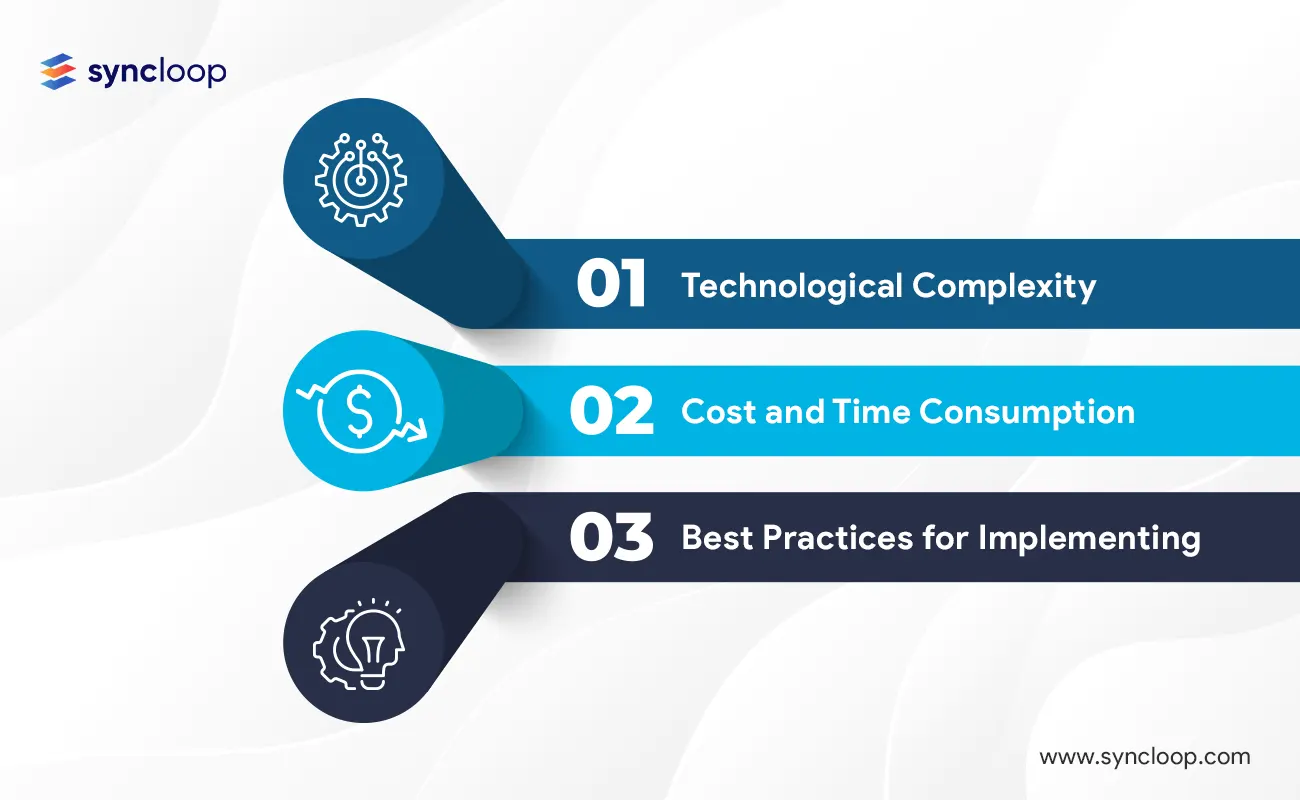Challenges of Implementing an API - The difficulty of API integration
API technology is complex, and business organizations and IT departments may lack the necessary skills to implement this technology successfully.

APIs allow two applications to interact with each other and exchange data in real-time. This seamless communication streamlines processes and creates a 360-degree view of your customers, enabling you to deliver an exceptional customer experience. With APIs, two separate applications can talk to each other in a more efficient and effective manner. This can help improve efficiency, increase customer satisfaction, and create new revenue streams. Apigee, a company that specializes in API solutions, conducted a survey of 1,000 business leaders and found that 71% of organizations believe the most important benefit of APIs is the ability to move from a product-centric business model to a customer-centric business model. This means that instead of focusing on selling one product, you’ll be able to sell multiple products. This can help you generate additional revenue and grow your business.
- REST APIs - These APIs are the most common type of APIs today, and they’re based on the HTTP protocol. REST stands for Representational State Transfer, and it’s an architectural design principle that’s focused on resources, their representations, and interactions between them. REST APIs allow clients to access data across networked devices.
- GraphQL APIs - are gaining popularity in the marketplace, and they’re primarily used to build web and mobile apps. GraphQL is a query language that lets you describe how your data is structured and what it looks like. It’s used to fetch data from a server and is an alternative to REST APIs.
- SaaS APIs - SaaS APIs are used by SaaS vendors to create a software-as-a-service model. This means that you subscribe to the software and use it as a service. SaaS APIs are commonly used for enterprise software and B2B software.
When deciding on an API for your business, you’ll want to ensure that it can handle your business volume, has good customer support, provides access to key data, and has a fair pricing model. - Volume - You’ll want to make sure that the API can accommodate the amount of data that you’re planning on sending through it. While some APIs might boast that they can handle millions of requests, you should test the volume to ensure that it can handle your volume. - Customer support - Vendors that offer great support will guide you through the implementation process and help you if you run into any issues along the way. This support can be in the form of documentation, webinars, and/or a forum where you can get answers to your questions. - Data access - You’ll want to make sure that the API has the data that you need to support your business, such as inventory, customer data, and financial information. - Pricing model - The pricing of an API can vary widely. You’ll want to ensure that it’s a good fit for your business.
Back to Blogs
API technology is complex, and business organizations and IT departments may lack the necessary skills to implement this technology successfully.